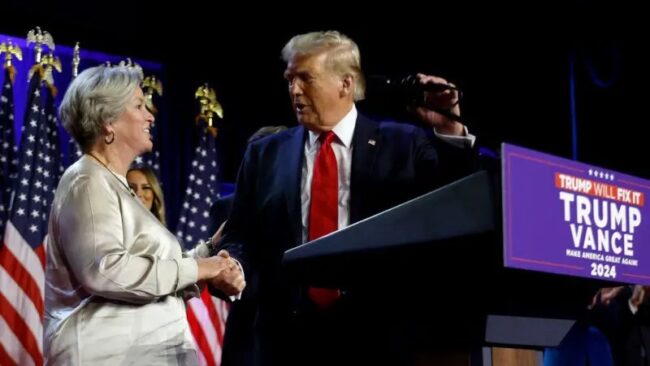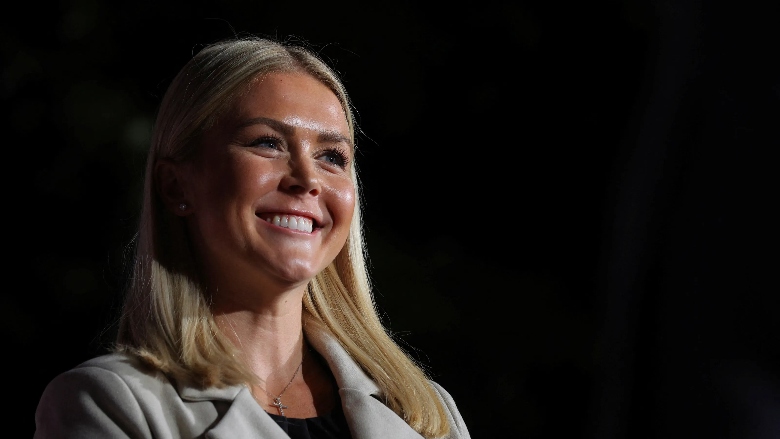Susie Wiles, a seasoned political strategist and key figure in Donald Trump’s recent presidential campaign, has been appointed as the new White House Chief of Staff. The announcement comes on the heels of Trump’s victory in the 2024 election, making Wiles the first woman to hold this pivotal role. Known for her sharp political acumen, Wiles is expected to play a central role in shaping the administration’s priorities and strategies.
Wiles has a long history of working with Trump, having been instrumental in his 2016 and 2020 campaign victories. Her work was particularly notable in Florida, where she helped secure crucial wins for Trump and other Republican candidates, including Governor Ron DeSantis. Her influence has been recognized as a driving force behind Florida’s rightward political shift.
Despite her close ties to Trump, Wiles has maintained a nuanced public stance on controversial events. She has expressed disapproval of the January 6 Capitol riots, though she has stopped short of attributing direct responsibility to Trump. This balanced approach has helped her navigate the often turbulent waters of Trump’s inner circle.
Wiles’ career extends beyond her work with Trump. She previously served as a senior advisor for Florida Governor Rick Scott and played a role in numerous state-level campaigns. Her experience in managing complex political operations has made her a trusted figure in Republican circles.
The decision to appoint Wiles as Chief of Staff reflects Trump’s reliance on loyal and experienced advisors. Known for her behind-the-scenes influence, Wiles has been described as the “ice baby” for her calm demeanor and strategic thinking. Her appointment signals a potential shift in how the administration will operate, with an emphasis on disciplined messaging and effective coordination.
However, Wiles’ tenure is not without controversy. She has been linked to Trump’s legal troubles, including allegations related to the handling of classified documents. While Wiles has denied any wrongdoing, her name surfaced in a federal indictment as someone allegedly shown sensitive materials by Trump.
Despite these challenges, Wiles remains a formidable figure in Republican politics. Her role as CEO of Trump’s Save America PAC further cemented her influence, as she oversaw significant fundraising and legal defense efforts. This position also placed her at the center of Trump’s political operations leading up to his 2024 campaign.
As Chief of Staff, Wiles faces the daunting task of managing a deeply divided political landscape. She will need to balance the administration’s goals with the realities of governing in a polarized environment. Her ability to navigate these challenges will be closely watched by both supporters and critics.
Wiles’ appointment has also drawn attention to the growing role of women in senior political positions. Her historic selection as the first female Chief of Staff highlights a broader trend of increasing diversity in political leadership roles.
Looking ahead, Wiles is expected to focus on unifying the administration’s agenda and streamlining operations. Her experience in campaign management and political strategy will likely be pivotal in achieving these goals. Observers note that her calm, strategic approach could bring much-needed stability to Trump’s often unpredictable administration.
The appointment has been met with mixed reactions. Supporters praise Wiles for her competence and loyalty, while critics question her proximity to Trump’s legal issues. Regardless of the debate, her selection marks a significant moment in U.S. political history.
Wiles has so far remained tight-lipped about her plans as Chief of Staff. In her few public appearances since the announcement, she has emphasized the importance of teamwork and strategic planning. These themes are likely to define her tenure in the coming months.
The White House transition team has already begun working under Wiles’ guidance. Her leadership style, described as calm but firm, is expected to influence the administration’s approach to both domestic and international challenges. How she navigates these complexities will be a key factor in Trump’s second term.

